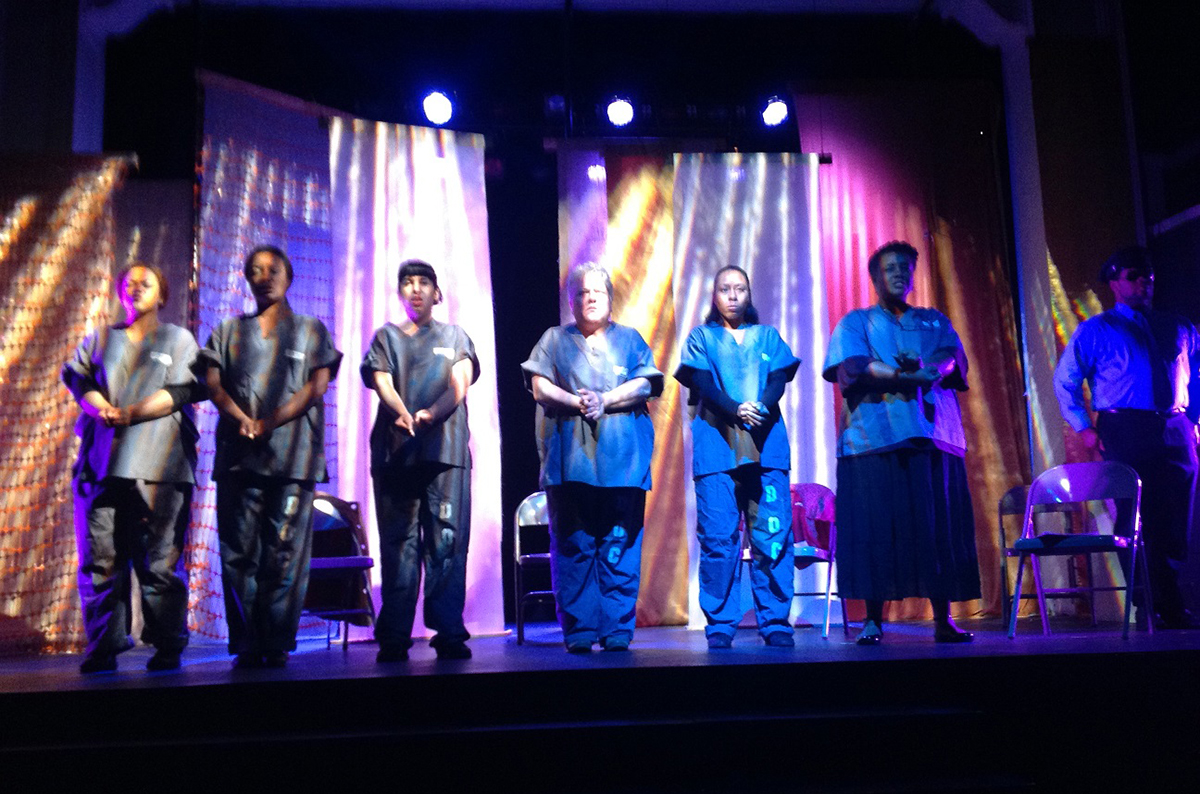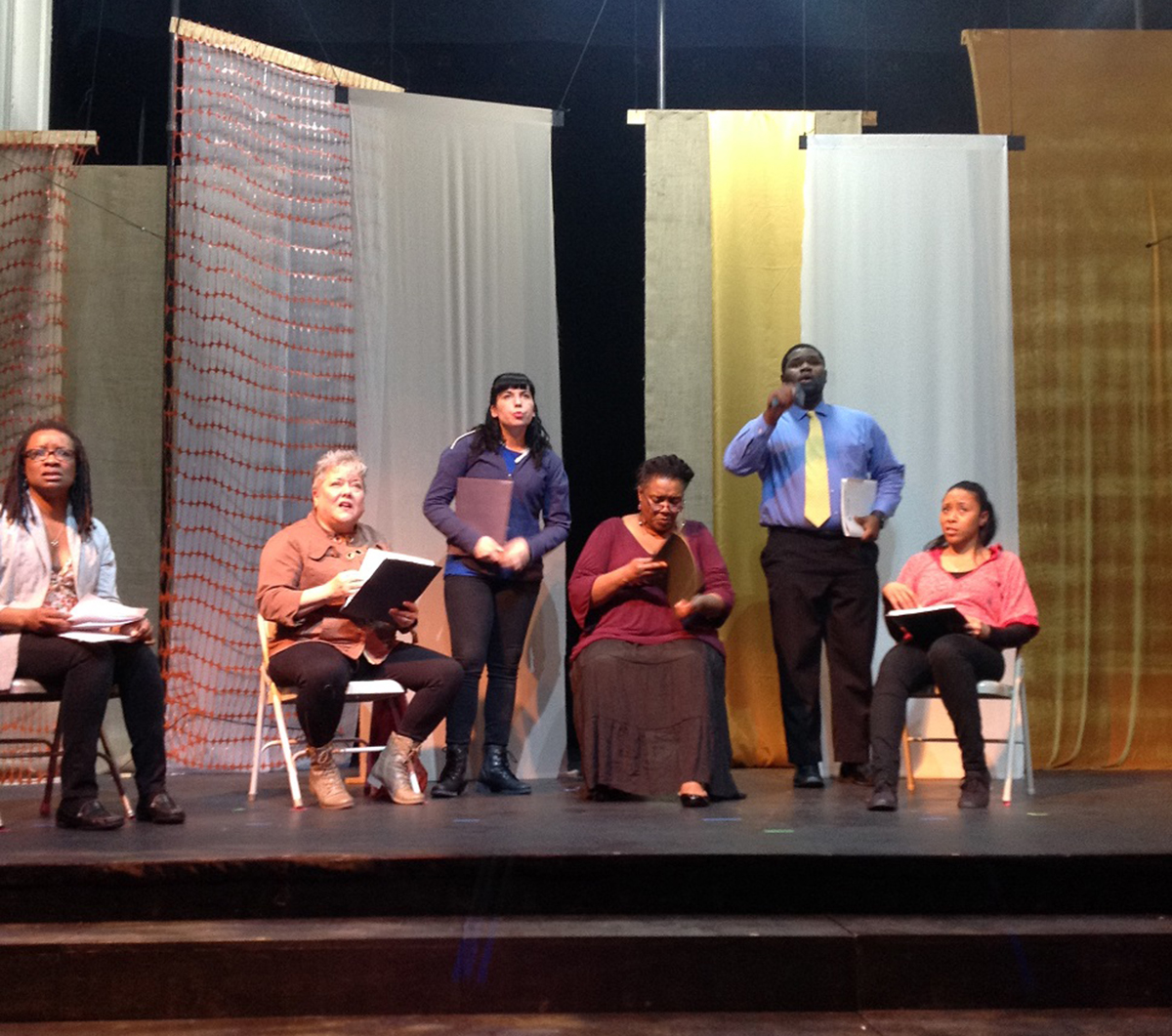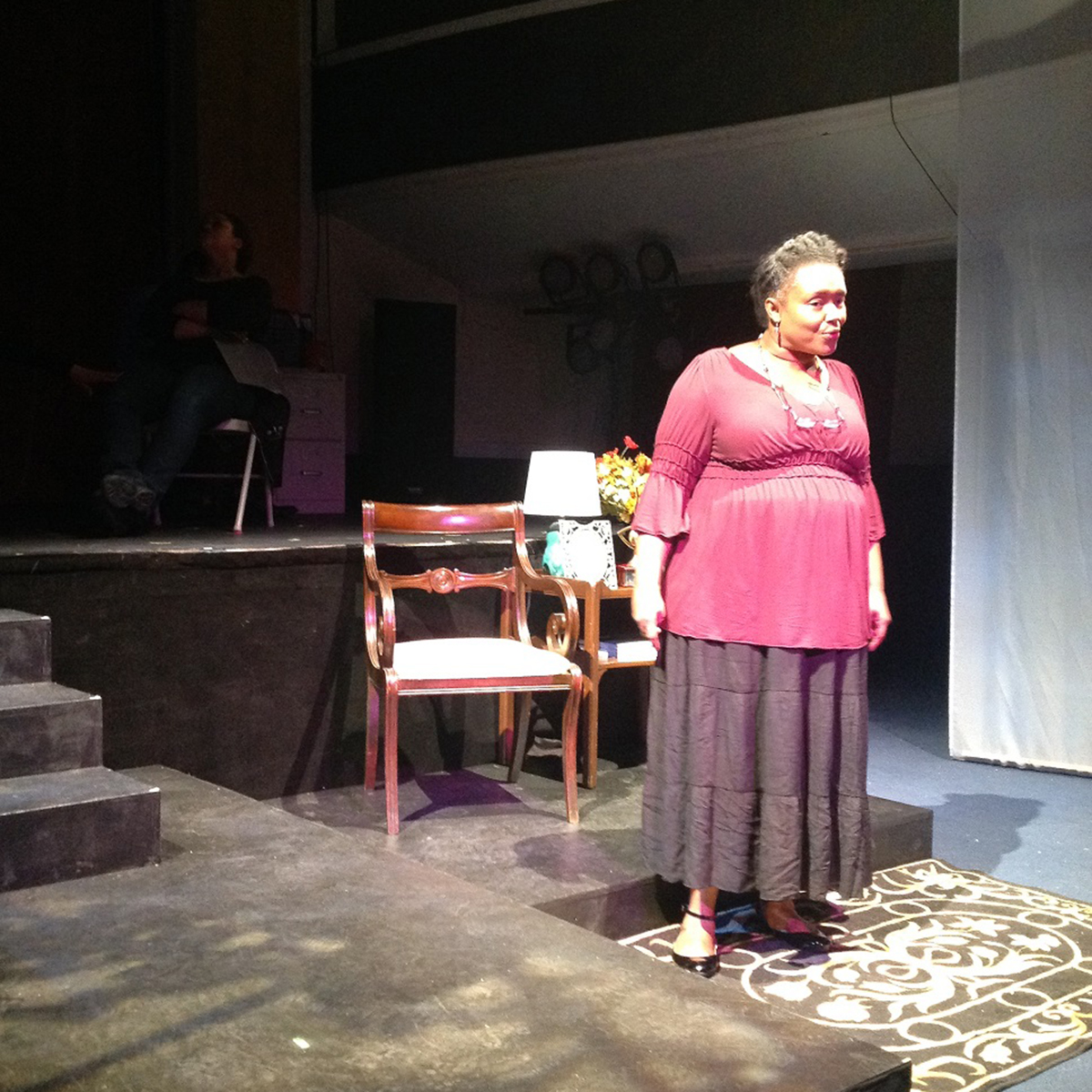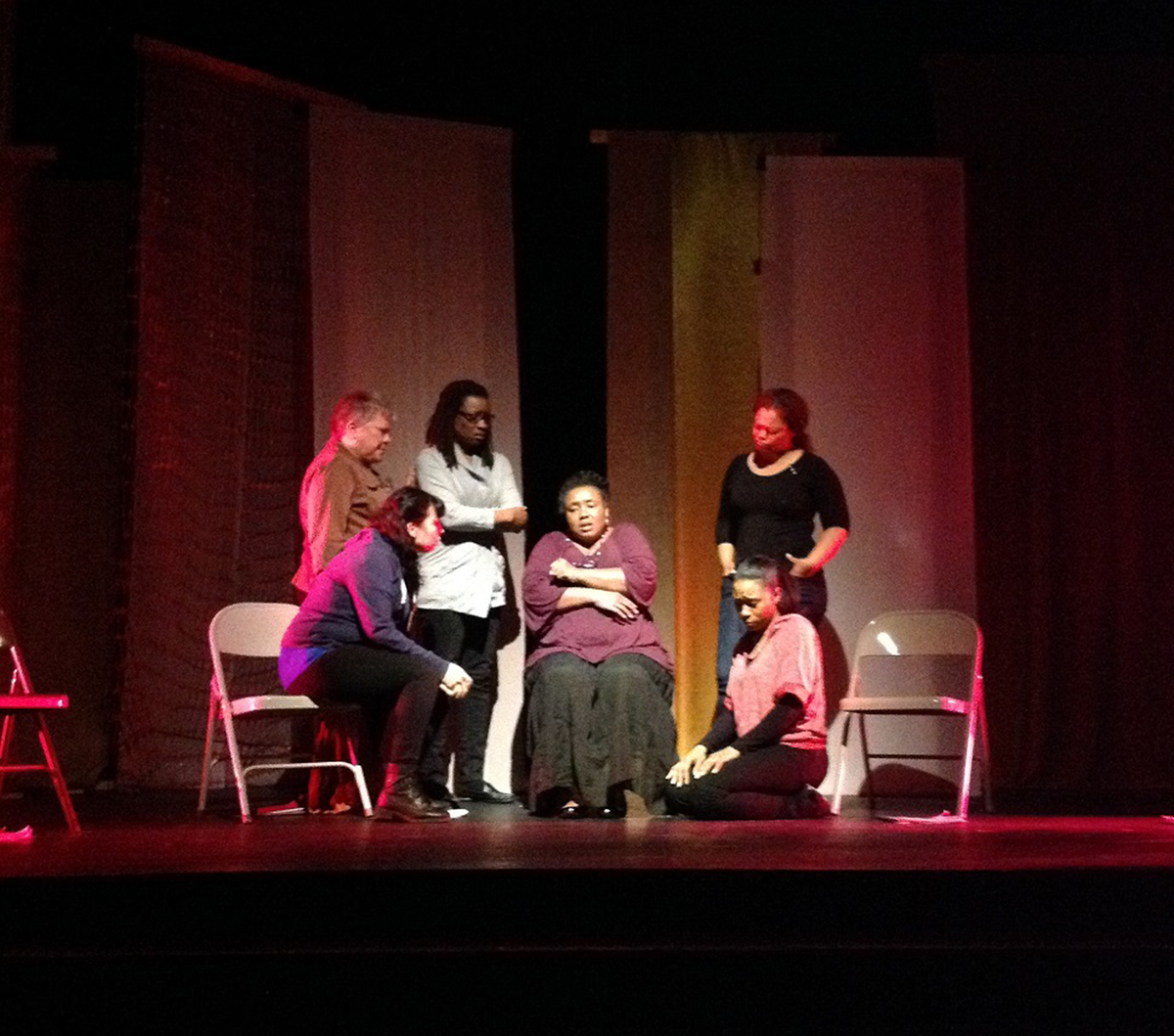‘Hidden Faces of Courage’ Offers Audiences a Dose of Reality

Opening shot of the company from ‘Hidden Faces of Courage,’ including Liana Asim, Shalaye Camillo, Theresa Chiasson, Alissa Cordeiro, Chris Everett, Johnnie McQuarley, and Ela Quezada. / Photo by Jean Trounstine
“Addiction is the answer to abuse,” says one of the women in the current production of Hidden Faces of Courage taking place at the Cambridge YMCA this weekend. Drugs, prostitution, God.
In other words, as another character says, pointing out the complicated stresses of reentry and its pitfalls, “Whatever works.”
While the play is not cynical, Hidden Faces touches on little-known truths that women face while exiting prison. It is successful because it allows the audience some real epiphanies and steers them away from all-too-familiar over-the-top caricatures of women behind bars.
“All of us were mothers, and we were thinking all the time what we could have done better,” says one woman to another, underscoring data pointed out by the Sentencing Project: in 2012, 64% of women were mothers when they entered prison or jails. As heartbreaking as separation is, reuniting with children is not easy once women are released.
We see other specifics that make exiting difficult for the burgeoning population in our prisons and jails—1.5 times the rate of men—including mostly poor women, the majority of whom are incarcerated for nonviolent crimes. There’s the futility of skills training and planning meals for women who can’t find jobs when they get out of prison; there’s the laughable idea of talking about retirement to a former prisoner who is homeless.

The women in a reentry group coached by a reentry worker. / Photo by Jean Trounstine
Written by executive director Mary Driscoll in collaboration with female ex-prisoners, artists, and human service professionals, and directed by Tasia Jones, the play is presented by a group called “On with Living and Learning” (OWLL), which aims, according to Driscoll, to inspire public dialogue about the incarceration of women and their plight after prison.
The printed program says, “By amplifying the voices of women reentering their communities…we promote their successful transitions as productive citizens and share their stories of strength and resiliency with the broader community.”
One of the highlights of the production is Liana Asim’s Mabel, a character based on a real prisoner whom playwright Driscoll became friends with named Laverne. It was Laverne who encouraged Driscoll to tell her story. Mabel shares the tragedy of her son, one of the 2.7 million children of incarcerated parents, who also ends up behind bars.

Mabel, played by Liana Asim. / Photo by Jean Trounstine
And she tells a haunting story as she struggled out of pain.
“We didn’t choose to be brought into this world to be raped or be abused.” This line reveals the fury about the emotional, sexual, and physical abuse that many incarcerated women like Mabel face, another barrier to their adjustment after prison. According to a Bureau of Justice Statistics Report, as of 2014, more than 75 percent of women have mental health issues from such abuse.
“I never told anybody about the rape or the HIV I got from the rape,” says Mabel in a chilling scene.
Surrounded by women who have shared her experience behind bars, she opens up, emphasizing one of the themes of the production: such women need treatment not prison. “Don’t just send us to NA and AA for God’s sake, help us with the trauma that led to the addiction.”

Mabel recounts her rape. / Photo by Jean Trounstine
While the aim of the performance is education, and the talkback session afterward features two formerly incarcerated women, several organizations are mentioned in the program for those who want to help. In particular, Families for Justice and Healing is a criminal justice reform group that speaks from the perspective of incarcerated women, and Families Against Mandatory Minimums in Massachusetts helps fight the harsh laws that have sent so many women to prison on drug charges.
Performances continue Friday, March 27, 7:30 p.m., and Saturday, March 28, 4 p.m. and 8 p.m. at the Cambridge YMCA Theatre, 820 Massachusetts Ave., Cambridge. For advance tickets, call 800-838-3006 or buy online at onwithlivingandlearning.org.


